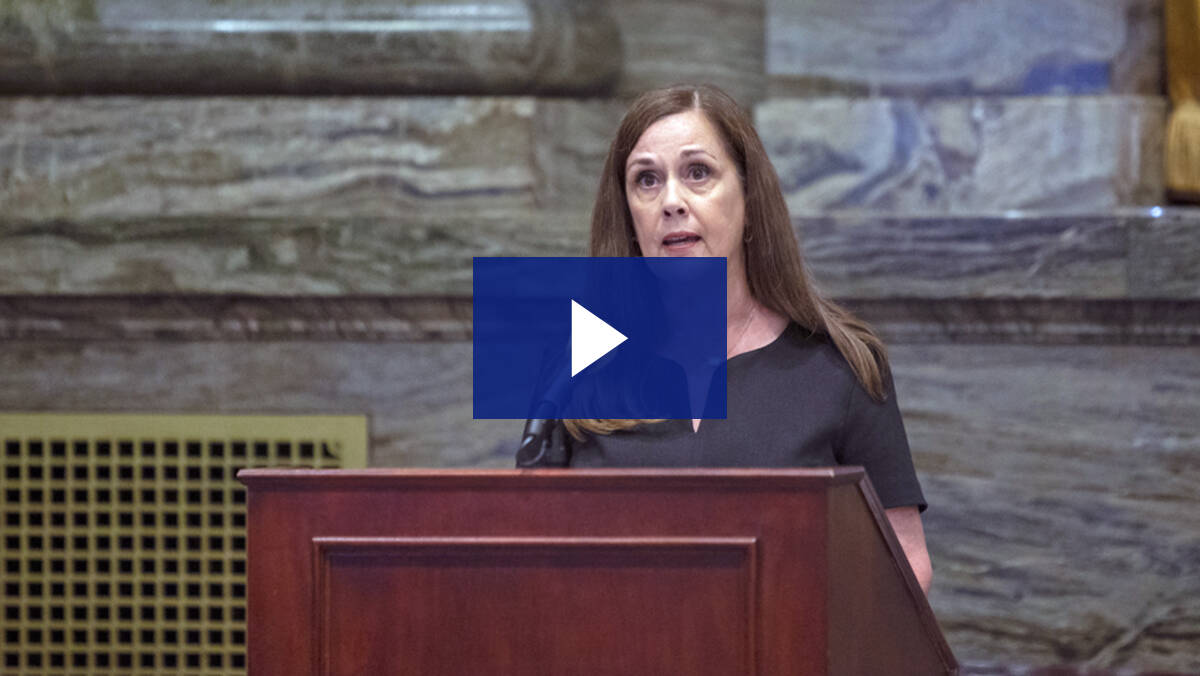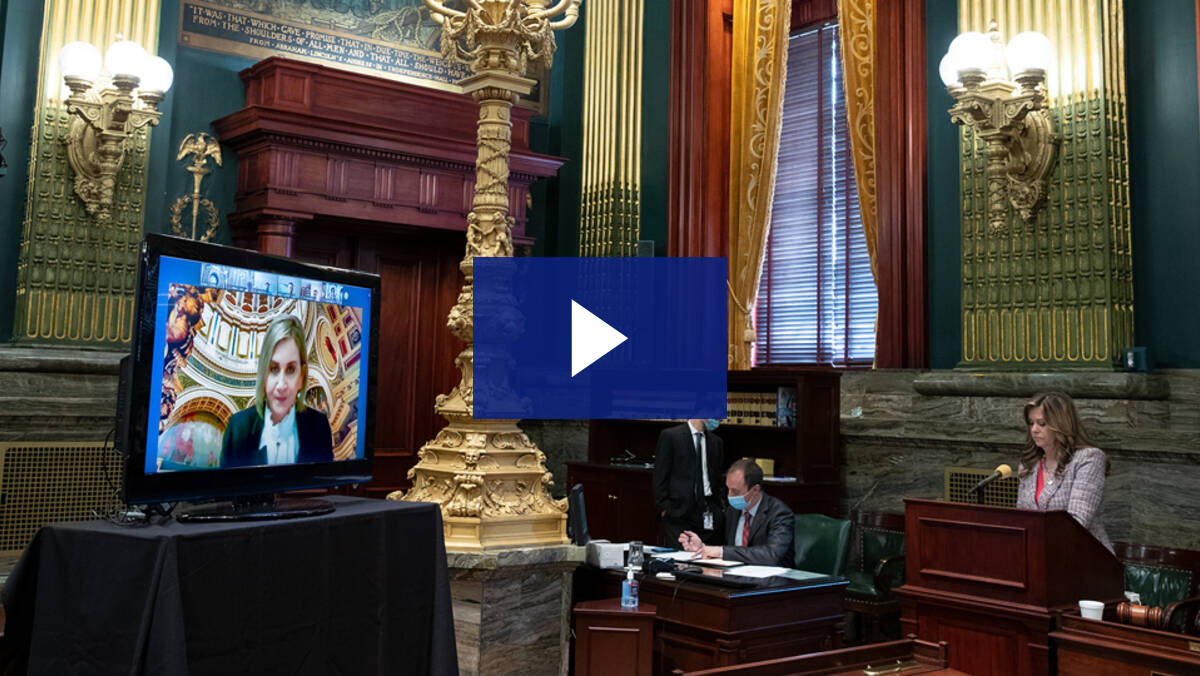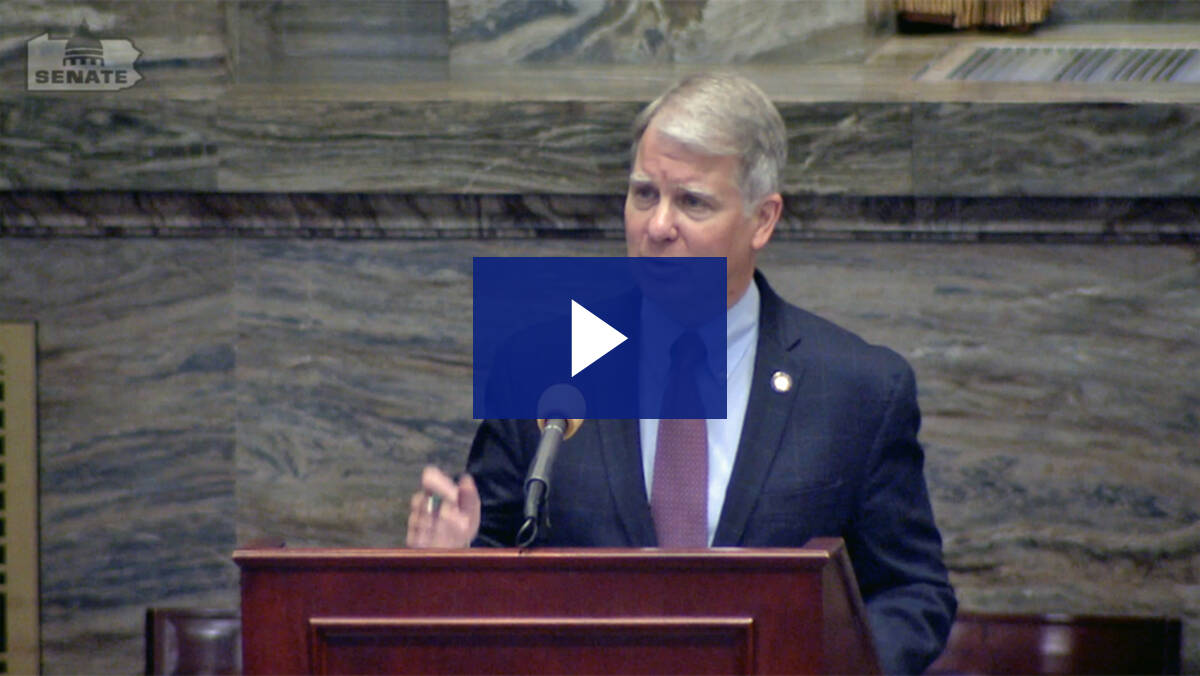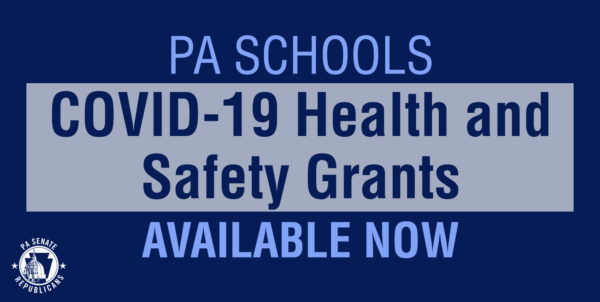
|
|
|
UPDATE: Lawmakers approved a concurrent resolution last week that requires Governor Wolf to terminate his COVID-19 emergency declaration, clearing the way for businesses to reopen safely statewide. The measure would not affect the state’s ability to receive federal funding or impact the ability of Pennsylvanians to receive unemployment and other federally funded benefits. To date, the governor has refused to do his Constitutional duty to end the disaster declaration. Senate leaders have petitioned the courts to force the governor to end his emergency declaration, and the state Supreme Court is expected to hear oral arguments on the case in less than two weeks. Unfortunately, this means that until the issue is settled in the courts, all of the governor’s current orders remain in effect. However, this could change if the courts rule in favor of ending the declaration. In the meantime, I will continue to share information on the governor’s orders and guidance for informational purposes only until the State Supreme Court weighs in. In This Update:
Hearing Explores Accountability, Equality in Law Enforcement and Criminal Justice SystemTwo Senate committees held hearings on Wednesday and Thursday to gather input on potential reforms that would ensure accountability and equality in law enforcement and the criminal justice system. The hearings included more than 40 participants who shared ideas and perspectives on issues like improved police training, updating use of force policies, parole reform and the potential consequences of defunding police. Testifiers on Wednesday included Pennsylvania Attorney General Josh Shapiro, district attorneys, the NAACP, ACLU and other activists. Experts in law enforcement, public safety and criminal justice testified on Thursday. Video of the second day of hearings is available here. DiSanto Op-Ed: Educational Choice Improves Equal OpportunityPennsylvania Department of Education Secretary Pedro Rivera recently issued a statement about how education can play a role in moving Pennsylvania forward on our national dialogue on racial inequity. He wrote, “we need to construct an education system that empowers our black and brown youth and gives them the tools and supports they need to be our next generation of leaders and change agents.” He also said, “I will continue to advocate on behalf of our students impacted by educational structures that have failed them.” I fully agree we must do more to reengineer our bureaucratic education system to remove institutional barriers preventing change from occurring and ensure equal opportunities for racial minorities and low-income students. The Secretary and Governor ought to embrace school choice as part of the solution. While I have voted for record high state funding for our public schools, our state can no longer turn a blind eye to the fact that our current ZIP code-assignment education system reinforces racial and income segregation. Access to a high-quality education is largely determined by parents’ ability to afford a home in more expensive communities, while socioeconomically disadvantaged students are often left languishing in chronically underperforming schools. Regrettably, Harrisburg School District is a prime example as its academic achievement regularly ranks among the lowest in Pennsylvania. Nearly 9 out of 10 high school students are not proficient on state tests for algebra, biology, and literature. These dismal results are in no small part attributable to many years of poor organization leadership and financial mismanagement within the district as well as regular controversies that have been a disservice to students and parents as well as all city residents, taxpayers and businesses. While I am glad Secretary Rivera heeded my and other locally elected leaders’ calls for state receivership to begin the process of turning the district around, it is not enough to simply let this intervention run its course while many students and families are desperately seeking better opportunities now. One has to wonder whether more privileged voices would get faster results. We know there are high-quality educational settings available for Harrisburg-area students such as the Capital Area School for the Arts Charter School, the Nativity School, The Silver Academy, and more. There are even nonprofit educational support centers such as the Joshua Group that have been serving local students for years with great success. I contribute to the Joshua Group because I know their mission and I have seen first-hand the lives they have changed through educational opportunity. Despite these trusted and well-known public and private schooling options, opportunity for Harrisburg students has been limited as the district has repeatedly rejected new charter schools, and state funding for popular tax credit scholarship programs such as the EITC and OSTC fall well short of parental demand. I implore Secretary Rivera and the Wolf administration to work with us in the General Assembly to champion school choice for tens of thousands of disadvantaged students today. We can advance equity in education by affording low-income families, many of them minorities, the same options as more affluent Pennsylvanians while also reinventing and reforming our underperforming district schools. Racism exists in America. Reforms are needed in our law enforcement policies and criminal justice system, which I’ve personally advocated for in the Senate with the Clean Slate Law and occupational licensure reform so individuals who have served their sentence aren’t prevented from participating in our society. Too many black and brown kids don’t have quality educational opportunities. I want the outrage expressed following George Floyd’s death under the knees of a police officer to bring us together in a sincere commitment to equality of opportunity so that the pathway to the American dream available to some, where educational achievement, talent, motivation, and perseverance determine success, is open to those for whom the door has been closed by skin color. Senators Question Timing of PA Turnpike LayoffsA Senate hearing this week raised questions about the timing of the Pennsylvania Turnpike Commission’s accelerated plan to switch to an all-electronic tolling (AET) system and lay off nearly 500 employees. The layoffs were announced just two weeks after the Turnpike Commission ratified a new contract with employees. The contract would have protected the jobs until January 2022, but instead employees were left with just two weeks to find new jobs. Workshop Discussion Details Devastating Impact of COVID-19 PoliciesThe Senate Majority Policy Committee reviewed the devastating impact of Governor Wolf’s extended COVID-19 closure orders on northeastern Pennsylvania’s economy and the resulting shuttering of businesses and local job losses during a workshop discussion this week. The discussion included state and federal lawmakers, as well as experts in health, industry and economic development. The workshop also included a conversation about the amount of time it would take businesses to recover from the governor’s shutdown – and the number of businesses that will never recover. Grants Available to Meet Health and Safety Needs of Students
I supported a bill that was signed into law several weeks ago that dedicates a portion of the state’s funding from the federal Coronavirus Aid, Relief, and Economic Security (CARES) Act to create a new grant program for schools to better protect the health and safety of students, teachers and school employees. The application period for the new COVID-19 Disaster Emergency School Health and Safety Grants program is open now through June 30. The program is designed to help schools manage new responsibilities in light of the pandemic, including cleaning and sanitizing, purchasing supplies, training staff, modifying school facilities, providing resources for distancing learning and more. In addition, a second grant program was created to support non-public schools. The new COVID-19 Disaster Emergency Targeted School Health and Safety Grants program allows Intermediate Units (IUs) to apply on behalf of non-public schools. Applications for that program must be completed by July 8. I strongly encourage our local school districts, area career and technical centers, IUs, charter schools, regional charter schools and cyber charter schools to apply. More information on the grants is available on the School Safety and Security Committee’s website. New Funding Available to Provide Relief to Dairy Farmers
A new $15 million program will provide direct relief to dairy farmers who have been impacted by the COVID-19 pandemic. Dairy farmers who experienced financial losses resulting from discarded or displaced milk during the pandemic are eligible to apply here to receive financial assistance through the newly created COVID 19 Dairy Assistance Program. An additional $5 million will reimburse dairy farmers who donate excess dairy products to the Pennsylvania Agricultural Surplus System. Training Program Supports Elder Abuse Reporting
Pennsylvanians who are responsible for the wellbeing of older state residents can learn more about mandatory reporting requirements through a new training module created by the Department of Aging. The training module takes about 30 minutes to complete and includes a great deal of information on how to protect older Pennsylvanians against abuse and neglect. Anyone with an existing account on the Department of Aging Learning Management System can access the training module here. Individuals who do not have an account can request one here. Capitol Reopens to Visitors on Monday
The Pennsylvania Department of General Services has announced the Capitol Complex will reopen to the public on Monday with modified infection prevention protocols. Visitors to the Capitol will be required to wear a mask to enter the building and adhere to social distancing protocols. Change in Restaurant Industry Guidance Supports Small BreweriesRestaurant industry guidance issued by the Wolf Administration included a number of concerning provisions, including a prohibition on refilling food and beverage containers. This restriction would have severely impacted small breweries since refilling growlers is a big part of their business. The Department of Health recently reversed course on this decision, mandating that beverage containers brought in by customers can be refilled without contact with the tap, containers are sanitized before each use, or if the tap is sanitized before and after each use. |
|
|
|



2024 © Senate of Pennsylvania | https://www.senatordisanto.com | Privacy Policy |






